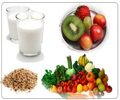
This finding reported in the study published in the Journal Nature publication show that dieting results in an increased amount of Clostridioides difficile, a specific bacteria associated with antibiotic-induced diarrhea and colitis.
When obese people try dieting to lose weight, the altered gut microbiome increases these bacteria influencing the absorption of nutrients from the gut and lower the energy balance.
The research team examined 80 older (post-menopausal) obese women following a medically supervised meal replacement regime containing less than 800 calories a day for a duration of 16 weeks.
"We were able to observe how the bacteria adapted their metabolism in order to absorb more sugar molecules and, by doing so, make them unavailable to their human host. One might say we observed the development of a 'hungry microbiome'," said the study's first author, Dr. Reiner Jumpertz von Schwartzenberg, a researcher and clinician at the Department of Endocrinology and Metabolic Diseases.
Regular stool sample analysis shows that dieting reduced the number of microorganisms present in the gut and changed the composition of the gut microbiome. The signs of increased colonization by a specific bacterium -- Clostridioides difficile is also detected.
Clostridioides difficile is one of the most common hospital-associated pathogens can cause weight loss due to toxins released from the bacteria resulting in gut inflammation.
The findings of this study can give rise to treatment options for metabolic disorders such as obesity and diabetes. Future studies exploring how gut bacteria can be influenced to produce beneficial effects on the weight and metabolism of their human hosts.
Source-Medindia














